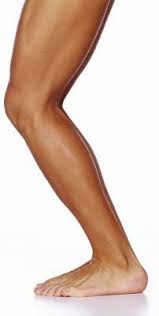记忆方法
将“leg”与“legit”的谐音联想记忆:“leg”像“擂”,想象在某个正式场合(如法庭),一个“擂”主(legit的谐音)展示着他的实力(leg),使其合法且强大。这种场景可以帮助你记住“leg”的意思是“腿”。
以上内容由AI生成, 仅供参考和借鉴
中文词源
leg 腿
来自PIE*lek,弯,转,词源同limb.引申词义臂弯或膝弯,后固定用于指腿。
英语词源
- leg
-
leg: [13] Shank was the word used in Old English for ‘leg’. Not until the late 13th was leg acquired, from Old Norse leggr. It goes back to a prehistoric Germanic *lagjaz, which may ultimately come from a source that meant ‘bend’. No other Germanic language any longer uses it for ‘leg’, but Swedish and Danish retain lägg and læg respectively for ‘calf’.
- leg (n.)
- late 13c., from a Scandinavian source akin to Old Norse leggr "leg, bone of the arm or leg," from Proto-Germanic *lagjaz, with no certain ulterior connections, perhaps from a PIE root meaning "to bend" [Buck]. Compare German Bein "leg," in Old High German "bone, leg." Replaced Old English shank. Of furniture supports from 1670s. The meaning "a part or stage of a journey or race" (1920) is from earlier sailing sense of "a run made on a single tack" (1867), which was usually qualified as long leg, short leg, etc. Slang phrase shake a leg "dance" is attested from 1881. To be on (one's) last legs "at the end of one's life" is from 1590s.
- leg (v.)
- "to use the legs; walk or run," c. 1500 (from the beginning usually with it); from leg (n.).
权威例句
- 1. He had to have one leg amputated above the knee.
- 他的一条腿不得不从膝部以上截断。
- 2. He heaved his crippled leg into an easier position.
- 他把自己的一条瘸腿抬到一个更加舒服的位置。
- 3. First he kicked the left leg, then he kicked the right.
- 他先踢左腿,然后踢右腿。
- 4. The bullet lodged in the sergeant's leg, shattering his thigh bone.
- 子弹嵌进了中士的腿里,使其股骨碎裂。
- 5. Is there an alternative to traction for a broken leg?
- 对于腿部骨折有什么方法替代牵引治疗吗?
